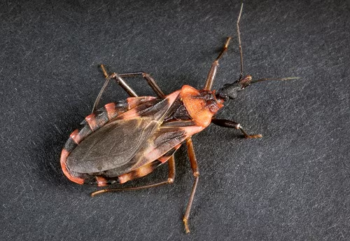With the sun out, temperatures rising but the ground still wet from recent rains, County environmental health officials this week urged people to fight mosquitoes by dumping out standing water in their homes and yards.
It is an ongoing call that has taken on added urgency this year because of the Zika virus.
County officials said people should check their properties for anything that could possibly hold water — a toy left outside, a saucer under a flower pot, a discarded cup, rain gutters or garbage cans — and dump it out to keep mosquitoes that could potentially transmit diseases from breeding.
“It’s really important for people to look around their properties to find places where water has collected and dump it out to keep mosquitoes from breeding,” said County Department of Environmental Health Director Elise Rothschild. “We all have a role in preventing mosquito-borne diseases, whether it’s West Nile virus or Zika.”
County residents have become accustomed to the call to help fight native mosquitoes because they can spread West Nile virus.
However, last year, the County’s Vector Control Program had to hand-spray 10 different neighborhoods to kill mosquitoes after finding invasive Aedes mosquitoes living near people who became infected with the Zika virus while traveling outside the country.
Invasive Aedes mosquitoes can spread tropical diseases not normally found here, including Zika, chikungunya and dengue, if they first bite an infected person and then bite other people. To date, no invasive Aedes mosquitoes have been found in San Diego County or California carrying these diseases.
However, invasive Aedes mosquitoes like to live and breed very close to people, in yards and even inside people’s homes. That makes it more important than ever for people to inspect their homes and yards for breeding spots.
Recent rains may have created new places for mosquitoes to breed — and this week’s sun and warming temperatures could speed up the mosquito breeding cycle.
Under San Diego County’s normal weather conditions, mosquitoes can grow from eggs to buzzing adults in 10 to 12 days, said Chris Conlan, a supervising vector ecologist with the County Vector Control Program. However, he said, when temperatures warm up, that timeline can shrink to five or six days.
Conlan said invasive Aedes mosquitoes, which are small with distinctive black and white markings and like to bite during the day, can breed in the tiniest amounts of water, as small as a bottle cap. Because of that, he said, people could stare right at a potential breeding source and not immediately recognize it.
Conlan said anything that can hold water — from rain or people’s sprinklers — could be a potential breeding spot. He said that he’s seen mosquitoes breed in half-inflated basketballs left out in yards and inside uncapped chain-link fence-posts that have collected rain or water.
“I’ve seen them fly out of those things in droves,” Conlan said.
Conlan said people should remember to follow the County’s “Prevent, Protect, Report” guidelines.
Prevent mosquito breeding
Dump out or remove any item inside or outside of homes that can hold water, such as plant saucers, rain gutters, buckets, garbage cans, toys, old tires, and wheelbarrows. Mosquito fish, available for free by contacting the Vector Control Program, may be used to control mosquito breeding in backyard water sources such as unused swimming pools, ponds, fountains and horse troughs.
Protect yourself from mosquito bites
Protect yourself from mosquito-borne illnesses by wearing long sleeves and pants and using repellent when outdoors. Use insect repellent that contains DEET, picaridin, oil of lemon eucalyptus, or IR3535. Make sure screens on windows and doors are in good condition and secured to keep insects out.
Report possible mosquito activity
Report if you are being bitten by mosquitoes during daylight hours, or if you find mosquitoes that match the description of Aedes mosquitoes by contacting the Vector Control Program at (858) 694-2888.
Information about the Zika virus, chikungunya, and dengue can be found on the Centers for Disease Control and Prevention’s website.
For more information about mosquito-borne illnesses, go to San Diego County’s “Fight the Bite” website. You can also get more information about how the County works to trap and test invasive Aedes mosquitoes, and hear how the public can help prevent mosquitoes from breeding in the following videos.






